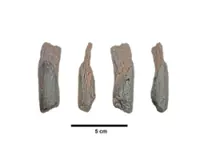NOW that he is back in office, US President Donald Trump sees corruption everywhere – within the foreign aid agency, at the Justice Department, in federal contracting.
But when it comes to his own circle, he seems far less interested in taking a closer look.
Follow us on our official WhatsApp channel for breaking news alerts and key updates!
starextra
,
stareats
,
Adams
,
Eric L; Mergers
,
Acquisitions And Divestitures; Kushner
,
Jared; Illinois; Lying; Suits And Litigation (Civil); Eric Adams Federal Corruption Case (24 Cr 556); Law And Legislation; Ethics And Official Misconduct; Trump
,
Donald J; Kushner
,
Charles; Inaugurations; United States; Bookbinder
,
Noah; Employee Fringe Benefits; Corruption (Institutional); New York State; Campaign Finance; Nepotism; Musk
,
Elon; Amnesties
,
Commutations And Pardons; Tennessee; Motivation And Incentive Programs; Rumors And Misinformation; Baker
,
Peter; High Net Worth Individuals; Government Efficiency Department (Us); Government Accountability Office; Senate; Governors (Us); Democratic Party; Nebraska; Foreign Corrupt Practices Act (1977); Conspiracy Theories; Inspectors General; United States Politics And Government; Foreign Aid; Diplomatic Service
,
Embassies And Consulates; Frauds And Swindling; Leavitt
,
Karoline; Politics And Government; Midterm Elections (2022); New York City; Prices (Fares
,
Fees And Rates); Presidential Transition (Us); Grants (Corporate And Foundation); Fortenberry
,
Jeffrey L (1960 ); United States Office Of Special Counsel; Coronavirus (2019 Ncov); Appointments And Executive Changes; Special Prosecutors (Independent Counsel); Government Employees; Conflicts Of Interest; Office Of Government Ethics; Blagojevich
,
Rod R; France; Elections; Bribery And Kickbacks; Presidential Election Of 2024; Ogles
,
Andy; House Of Representatives; United States Agency For International Development; Americans For Limited Government; Federal Bureau Of Investigation; Justice Department; Citizens For Responsibility And Ethics In Washington; Corporations; Washington
,
George (1732 99); Federal Budget (Us); Federal Aid (Us); Government Contracts And Procurement; Kushner
,
Brian G (1958 )
Thank you for your report!





